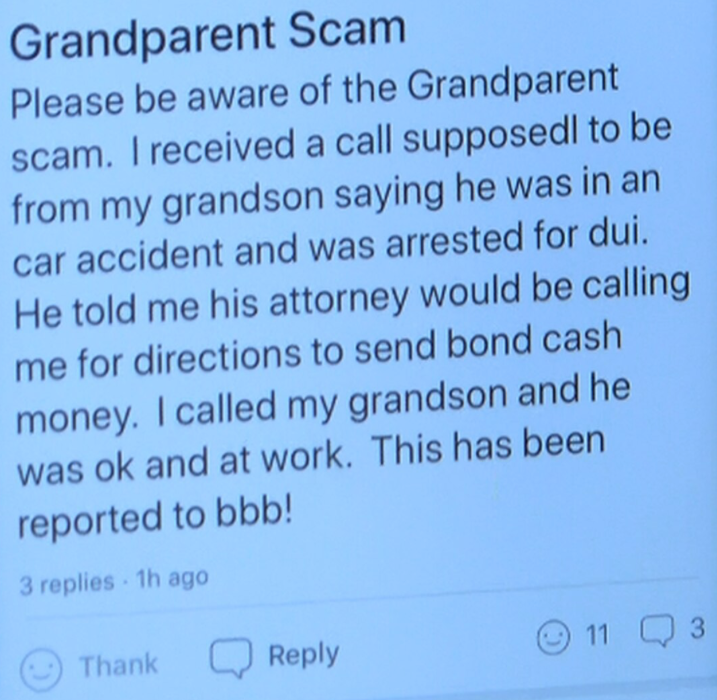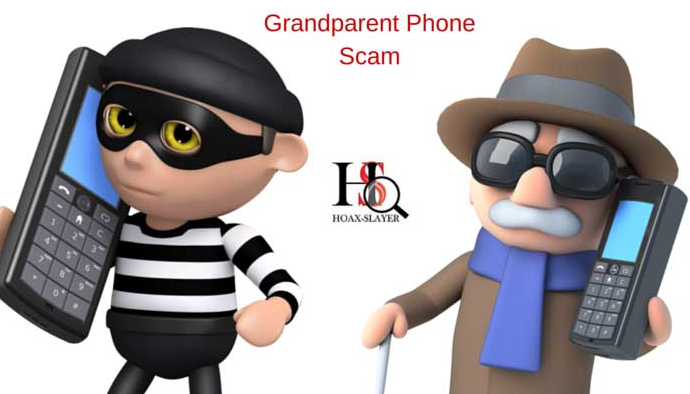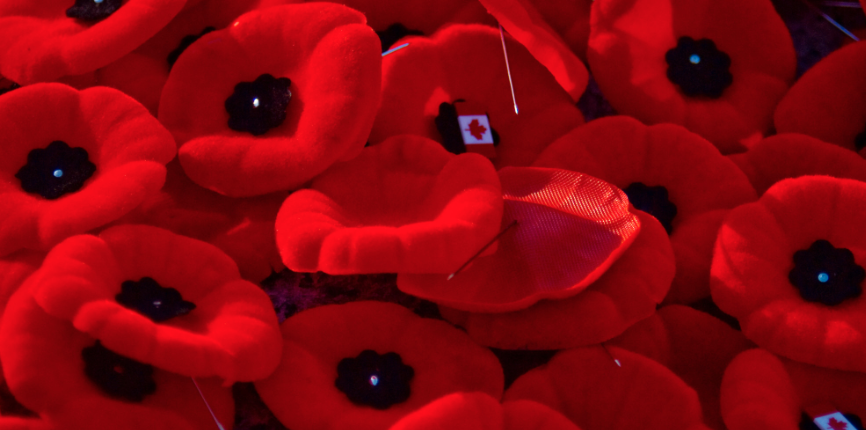The subject of today’s presentation was the cautionary tale of a legal imbroglio that was to be played out upon your correspondent, a scam with which a number of our members were already acquainted, but whose lesson is worth repeating in this forum. It took place on October 16th, the morning when I had to attend a procedure at VGH at 7am. This fact resulted in my returning home before 9 o’clock. There I found my wife, deeply distressed, talking on the phone to our eldest grandson, who was evidently in jail by virtue of an impaired driving offence, in which a lamp-post had been badly damaged and he had been ordered to come up with $12,000, before noon, otherwise he would be incarcerated for considerable period of time: he, equally distressed, was crying on the other end of the phone, and elicited from his grandmother a promise not to tell his father, who is a lawyer with a corporate practice, but with very little practical criminal experience (that part was similar to my type of legal practice … i.e. scant experience in the criminal courts).
A few moments before I arrived Judith had had a call from the lawyer who had ‘managed to get the court to agree that a $12,000 deposit would fix the immediate problem’. I phoned him (a 403 number) and told him that I was a retired lawyer, but wished to retain one of my past partners to look after the situation, a comment that elicited a most rude response from the ‘David Mason’, who I was about to tell was acting most unprofessionally when he rudely tole me that he would drop the case and slammed his phone down. I phoned my old partner, and he referred me to an old friend of our firm’s, who took hold of the problem, phoned around to the courts and their registries and called back to tell me that no Logan Frost had been arrested over the weekend and that this was clearly a scam of some considerable, but flawed, skill. We phoned our son, he being at home because of Covid, who was able to tell us that Logan was asleep in his room, and had certainly not been drinking or arrested over the weekend.
The lesson here is clear: when Judith was first called, the person on the other end of the line was weeping unconsolably, and she reasonably said “is that you, Logan?” This was all that the scammer really needed to know, his voice being unrecognizable given his extreme 'distress'. Fortunately, I had enough nounce to call those who could help, even though I was obviously operating on low wattage, and the schema was, in retrospect, shambolic and ill-thought-through. But we know of two other instances in the past where a similar modus operandi has been tried, once with success. And if 2 to 3% of these calls work, somebody can make a pile of money: the mantra must be “keep calm”!


I cannot let this opportunity to proselytize pass without making a comment about the disturbing news received over the weekend wherein a major food retailer prohibited its employees wearing the poppy over the coming Remembrance Day, a stricture apparently rescinded only a day or two after being pronounced. But it is easy to forget what this symbol means to our society, and, if anyone wishes to do so, a commentary can be found in the book “Douglas Haig: From the Somme to Victory” by Gary Sheffield. From here we learn that the British Legion acquired the symbolic red Flanders poppy in large part because of John McRae’s poem ‘In Flanders Fields’. The Legion, partly created because of Field Marshal Haig’s concern respecting the vast numbers of unemployed and abandoned soldiers, though hesitant to adopt the symbol, finally agreed in August 1921 to the creation of a Poppy Day on the anniversary of Armistice Day. “The first Poppy Day was a huge success” the book records, and by 1926 disabled servicemen were employed in a factory that “manufactured 25 millions poppies a year”. It became in 1921 "an instant tradition”. It is difficult to declare now whether the pandemic will lessen or increase the popular respect for this institution … one suspects that it might well result in even greater relevance, though the availability of the poppies themselves today seems quite restricted, if only because of the absence of retired servicemen to sell them in shopping arenas. It is interesting to note that the parade at the Cenotaph was first broadcast in 1927 by the fledgling BBC: that tradition now seems an intrinsic part of each passing year.
